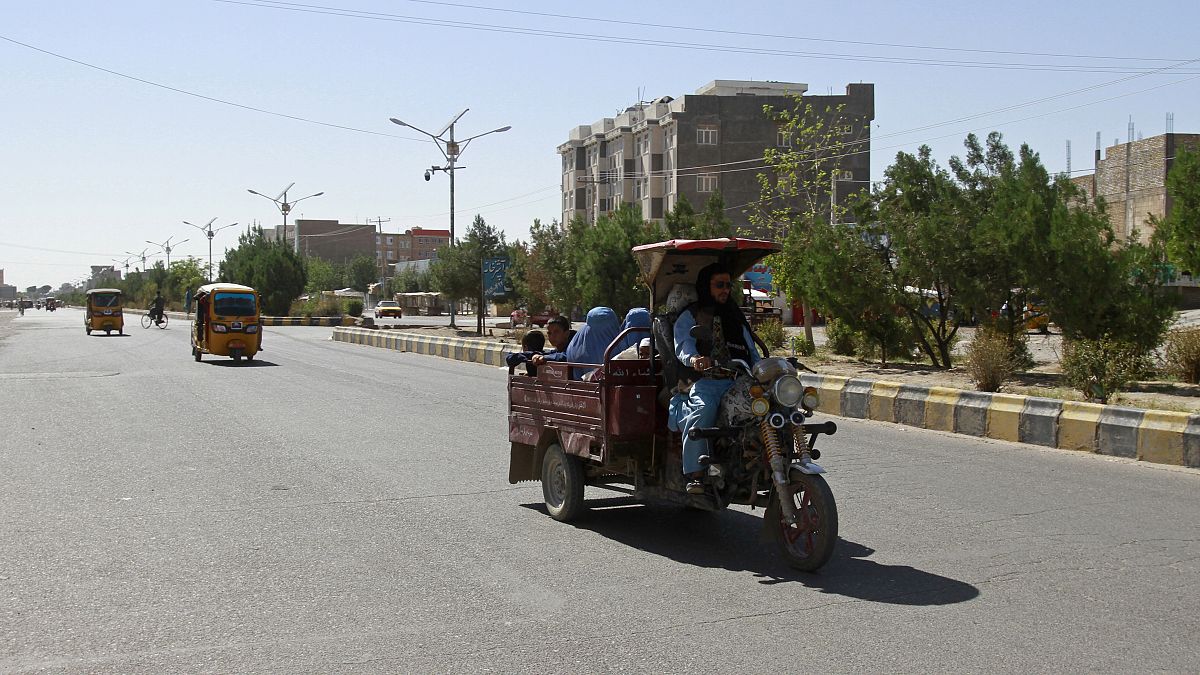"We lost everything we achieved in these 20 years in a blink of an eye," a female journalist in Kabul told Euronews.
Female journalists and activists who have worked towards amplifying the voices of women in Afghanistan now fear for their lives as the Taliban took over Kabul on Sunday in a rapid power grab.
Many women journalists were in hiding after being told to return home as Kabul was taken by the armed group.
“I am very, very sad, I cry with my heart for Afghan women,” one female journalist told Euronews, speaking anonymously because she fears for her safety.
“Afghan women will not be free,” she said, emphasising that, under the Taliban, women will not be able to work or receive an education.
“The Taliban will stone women, journalists and civil activists,” she asserted.
A young female journalist said on Tuesday that she could not stop working because she had worked hard to be able to study. She decided to risk going to the office.
"I [wore] a long dress and a big scarf and mask. I asked my brother to take me to the office. [On the way] to the office I was numb. I was just walking," she told Euronews.
She described the moment she found out the Taliban had taken over Kabul, stating that her mother called her crying and asking how her daughters would get home.
"It's a very bad dream. I cannot believe that after this I am in prison. I have to wear a long dress and hijab," she said. "I feel sorry for my people, especially for women. They are innocent."
The first female deputy speaker of parliament in Afghanistan, Fawzia Koofi, said on Monday that the streets in Kabul were empty: "History repeats itself so quickly."
Residents in Kabul told Euronews that few women were seen on the streets after the Taliban took over. Banks have closed so there's no access to cash, and people were also unable to get food.
There were also scenes of desperation as Afghans tried to flee the country.
Video posted to social media showed people rushing to the airport and attempting to get on evacuation flights. Western countries have evacuated their embassies but many Afghan journalists will not have the choice to leave and fear retaliation.
In an open letter to the German government on Sunday, German media companies wrote that journalists should be evacuated from the country because they face retaliation for their work.
“German publishers, editorial offices, broadcasters and media companies...are calling for a visa emergency program to be set up for Afghan employees of German media organisations,” the letter read.
The organisations said the letter was a “cry for help” as local Afghan citizens were instrumental to their coverage of the country over the past 20 years.
“Life in Kabul has become extremely risky for employees of international media organizations. After the withdrawal of the international troops, including the Germans, there are growing concerns that the Taliban will commit acts of revenge against our employees,” the letter published by German media outlets added.
An Afghan journalist told Euronews she feared that Afghans would be killed, stating that “the Taliban hate them because they are symbols of the [past] twenty years in Afghanistan.”
Under Taliban rule, women and girls were banned from school and work. They were not allowed to leave the house without a man or show any skin, and punishment for failing to comply was harsh.
A quickly evolving situation
A journalist who said she fears for her life told Euronews that she found out that the Taliban were in Kabul when trying to withdraw money after work.
“The money changer said ‘you must go home, the Taliban have come’,” she told Euronews. She was told that she could not be outside because she was not with a man and she was not wearing a Burqa.
“Cars came back from Kote Sangi Bridge in Kabul. They said the Taliban were coming. Everyone was fleeing. I went back home,” she said.
Another female journalist, who went to Iran for medication a month ago with her 10-year-old child, said she did not know what to do and felt “desperate”.
“I feel desperate really...we lost everything we achieved in these 20 years in a blink of an eye. No one can even imagine,” she told Euronews. She said she has not been able to get to her home in Afghanistan.
“I have nothing, no money, no home, no job, nothing,” she said. “I’m worried about my country.”
